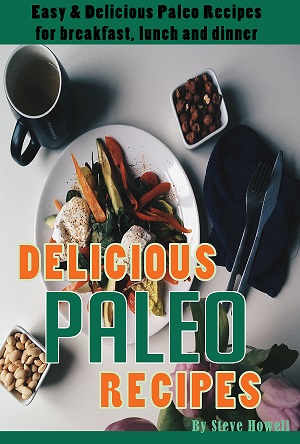Fats and Oils - The Good, Bad and Ugly
From Your Lips to Your Hips
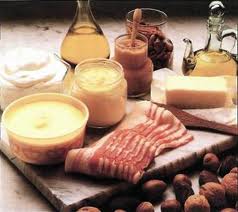
Fats and oils are calorie dense foods. Calories in foods come from one of three things. Carbohydrates, proteins or fats. Carbs and proteins are about 4 calories per gram. Fats and oils are 9 calories per gram. 100 calories of fat can be converted to 97 calories of body fat. There is little processing the body needs to store fat.
Actually, if what is on your waist line is biopsied, they can tell if it is from olive oil, fish, pig, dairy or what. It really does go from your lips to your hips.
Fats and oils are also an appetite stimulant. The more you eat the more you are going to want. Combining fat and processed foods like sugar or flour is a powerful way to signal the body to accumulate fat. The processed foods cause a rise in blood sugar which causes an insulin surge to drive the sugar out of the blood. Increases in insulin also promote the storage of fat.
The more that is stored, the more insulin it takes. A little fat around the waist can cause two to five times as much insulin to be produced. More insulin means more fat storage. It now becomes even easier to get heavier. It is a vicious cycle.
The Experts are not always right!
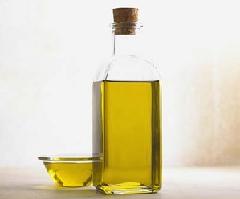
The message from many experts and the uniformed media is that you shouldn’t go on a low fat diet. That part is right. You shouldn't go on a low/no fat diet.
Then they tell you to just replace the fats and oils you are eating with healthy ones like olive oil. They think olive oil is healthy.
There is evidence that consuming olive oil, a monounsaturated fat, is healthier that consuming saturated and trans fat. However, olive oil is one of the most calorie dense foods you can buy. One tablespoon is 120 calories. It can turn a 100 calorie salad into a 400 calorie salad really quick.
How did this perception that olive oil is a health food come about?
Well, in the middle of the last century, scientists looked at diets from around the world and saw that people living in the Mediterranean on the Isle of Crete were lean and virtually without heart disease. These people ate about 40% of their calories from fats and oils, primarily olive oil. They assumed that olive oil was a health food.
The thing they didn’t
look at was the fact that their diet was primarily from fruits,
vegetables, beans and fish. They also worked exceptionally hard. Most walked about 9 miles a day and they were farmers so they worked in the field all day. They grew most of what they ate, maybe some fish they caught, but it was a mainly vegetarian diet. They were very poor.
They ate very little saturated fat, got plenty of exercise and ate a diet that was high in nutrition. The scientist didn’t look at any of that they just got “olive oil must be healthy”.

Today
those people are just as fat as Americans. They still eat plenty of
olive oil, but just like Americans, consumption of fruits, vegetables
and beans are down. Consumption of meats, cheese and fish are up. They also no
longer get the exercise they once did.
The truth about olive oil:
Olive oil is still 100% fat. Just like most fats and oils, olive oil
has almost no nutrients. It will add to your waist line. It is still
14% saturated fat. One tablespoon is still 120 extra calories. It will help clog the arteries. Olive oil is not health food!!!
Yes it is probably better than other types of fats and oils like butter, which is almost all saturated fat, but it still causes weight gain. Weight gain raises cholesterol, which causes heart disease.
If you are thin and exercise a lot, you can probably add a little olive oil to your diet. If you are overweight, you shouldn’t eat any excess fats and oils. Either way you should be getting the essential fats you need from healthy choices such as raw nuts, seeds, and avocados. These should also be limited, especially if you are overweight.
Check out the chart of Fats and Oils for a table that shows how much saturated, monounsaturated, polyunsaturated and trans fats are contained in 1 tablespoon of various commonly used fats and oils.
Look at Facts about Oils for some interesting facts about some of the more common oils as well as cooking with oils.
Fats are essential
A no fat diet is not good for you either. Remember, that some key vitamins are fat soluble like vitamin D. Vitamin D absorption depends on the fat. We are just eating the wrong kinds of fats. Essential fatty acids are polyunsaturated fats that the body can’t readily make on its own, and is necessary for good health and disease prevention and treatment. The two primary essential fatty acids are linoleic acid, an omega-6 fat and alpha-lineolenic acid an omega-3 fat.
Balance is The Key
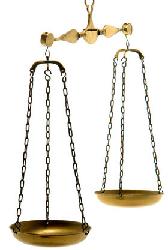
Optimal health requires a balance of these fatty acids. Today most people’s diet is high in omega-6 and low in omega-3. Omega-6 fats are found in meat, poultry, dairy, eggs and polyunsaturated oils like corn oil and safflower oil.
You can get omega-3’s from flaxseed, walnuts, leafy greens, soy products and fatty fish. The higher the ratio of omega-6 to omega-3, the higher the risk of heart disease and diabetes. You should consume 1 to 2 grams of omega-3 daily.
An omega-3 supplement is usually required if you are not eating the proper foods, especially if you don’t eat fatty fish regularly. I don’t recommend eating a lot of fish though. It is one of the most polluted foods we eat. Fish can be contaminated with mercury, lead, chlorine, bromine, dioxins and PCBs.
Fish such as the salmon from the Great Lakes are so polluted that you get as much PCBs from a half pound of it as you would if you drank the lake water for 100 years.
The Good Fats and Oils
Unsaturated Fats – This is the group of fats that are a
mixture of monounsaturated and polyunsaturated fats. This is what is
considered by the experts to be the “good fats". Eating these fats may
lower cholesterol when substituted for saturated or trans fats, but they
still cause weight gain and may promote disease. They should be consumed in moderation.
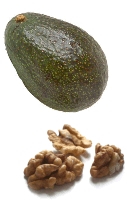
Monounsaturated Fats – An unsaturated fat found in avocados, most nuts, seeds and peanuts. Olive oil, canola oil and peanut oil contain a higher percentage of monounsaturated fat as compared to other oils. Regardless of what the so called experts say, these are not health foods. They are still 100% fat.
Polyunsaturated Fats – An unsaturated fat found in some fish, corn oil, soybean oil, safflower oil and sunflower oil. These are the omega-3 and omega-6 fatty acids.
The Bad Fats and Oils
Cholesterol – This is a waxy fat that is produced by the body and found in animal products like meats, poultry, dairy and eggs. Eating foods containing cholesterol can raise blood cholesterol, although not as much as eating saturated and trans fat foods. Plants are virtually cholesterol free.
The Ugly Fats and Oils
Hydrogenated Fat – Also called Trans Fats – These fats are not naturally occurring. These are unsaturated or polyunsaturated fats that have hydrogen molecules added to them. This turns them from an oil, or liquid, to a solid at room temperature, such as margarine.
This process extends shelf life. This allows restaurants to be able to fry foods over and over and manufacturers to be able to add it to processed food like cookies and crackers extending their shelf life.
Although it doesn’t become a saturated fat, it does produce trans fatty acids. Trans fatty acids raise LDL the bad cholesterol and lower HDL the good cholesterol. Evidence is accumulating that implicate these fats as causing cancer and heart disease. These should be avoided. Again, none in plants.
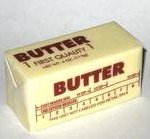
Saturated Fats – These fats are solid at room temperature. They also raise LDL cholesterol. They are found in meats, poultry, dairy and eggs. Other sources are coconut and palm oil. Foods really high in saturated fats are butter, cheese, fatty meats like prime rib, and chicken, especially with skin. Again, very little in plants.
In Conclusion
High fat diets have been proven to be the cause of increase rates of heart disease, cancers, diabetes and other health issues. Even the so called healthy fats and oils such as olive oil can pose risks. It is the excess calories that pose the health risk.
If a tablespoon is 120 calories and you follow the recommendations of the “experts” and consume 1 to 2 tablespoons a day. That is an extra 120 to 240 calories a day. One pound of body fat is about 3500 calories, so that is 1 to 2 pounds a month.
If you are at your ideal weight eating unsaturated fats and oils is probably not a big deal. If you are overweight that could be a big deal.
It’s the saturated and trans fats that are the real killers. Cheese is the biggest killer today. It has more saturated fat than almost any other food. 8 to 9 grams of fat per ounce. An ounce of cheese is not much cheese. Even low fat cheeses are around 50% fat with 60% or more of that being saturated fat.
Remember, we must have fats in the diet. These should be the healthy fats found in raw seeds, nuts, avocados, and maybe some fish. Include omega-3 fats and avoid saturated and trans fats.
Article by: Steve Howell

